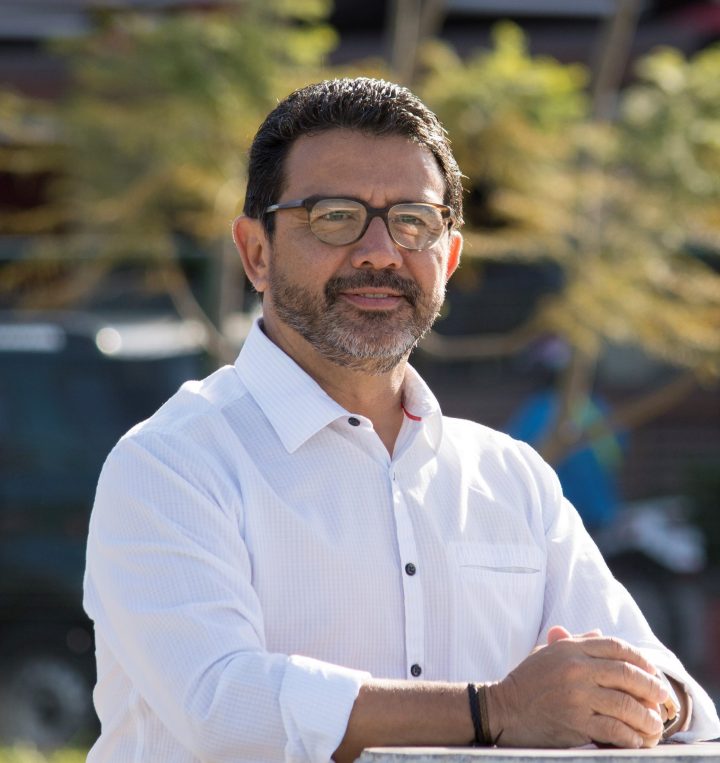We interviewed Costa Rican economist José Rafael Quesada, in his capacity as coordinator of the Economics Network that works in the context of the IV Latin American Humanist Forum, to find out from now on what the work they have begun to organize consists of.
José Rafael Quesada: Basically we have developed a general invitation through social networks, so that friends interested in making proposals on the economic issue, could make them within the framework of a humanist economic thinking that makes a difference in favor of people.
Then we are preparing a face-to-face meeting to share and integrate knowledge and experiences in different economic areas, studying them in the light of our humanist approach.
And from the meeting, to prepare an agenda or work plan to make the Humanist Economy Network develop and become very operative in the region. That generates thought, proposals for action, work plans with educational institutions and regional and local organizations throughout the Latin American region.
While initiating the Forum we have created a page in a social network, with the intention of sharing written materials, economic studies, experiences with interesting, replicable and positive results for the humanists of the region.
We compile materials from diverse sources such as social organizations, action fronts, humanist organizations and then those coming from academic studies, universities, research centers, social organizations and others; to share and sustain a permanent exchange of these experiences and strengthen humanist work in the economic area.
Pressenza: Why the meeting within the framework of the Latin American Humanist Forum? What do you expect from this meeting? Where do the participants come from?
JRQ: The meeting is important because the participants can make a good exchange of experiences and knowledge about the current economic situation, the humanist point of view on the regional and local economy and other variables of solution of the economic problems of the people in the region.
The basic objectives of the Meeting are to begin with the network and a plan for the functioning and growth of the Humanist Economy Network, increasing the integration and exchange of friends in the region; and then with the realization of the Meeting to give rise to a Document or Declaration on the Humanist Economy in the Latin American context (trends and actions).
And from the meeting, to prepare an agenda or work plan to make the Humanist Economy Network work and become very operative in the region. That generates thought, proposals for action, work plans with educational institutions and regional and local organizations throughout the Latin American region.
Pressenza: How do you plan to continue the work after this Forum?
JRQ: With the organization of a permanent work team from the Network, it is intended to organize and achieve the objectives set, to achieve: The integration of new members of the region in the Network; the creation and permanent publication of a bulletin that includes articles, economic news, denunciations of economic violence in the region, studies and regional economic statistics; the generation of an agenda of meetings and work of the team, that at least meets once a month for coordination and effective work; the generation of a plan of publications in the social networks, that allows to maintain informed and attracting more and more people in the region, on the economic topics and actions of humanist economy in the region.
We also aim to coordinate the generation of Humanist Economy Forums in the Region, supported by Universities and Economic Research Centers, to introduce into the environment of academic, political, trade union and social thought, and other sectors our humanist approach and sensitivity in the search to influence the direction of the regional economy; to place some topics in the mouths of humanists and other sectors of the Latin American population, such as the realization of proposals that tend to the humanization of the economy starting from the instrumental conception of economic factors at the service of the human being (New Humanism Dictionary, Silo); etc…
Pressenza: Would you like to add something for our readers regarding the May meeting in Santiago?
JRQ: Yes, we have said that an “Economy that is not at the service of people, is a useless economy” and that we humanists can propose new mobilizing ideas so that we can create and relaunch actions that question the economic model we are forced to live in everywhere and deepen in the generation of an economy at the service of the worker and the benefit of the majority of the population.
In this era of single economic thinking, what better than to propose economic actions so that in Latin America we change the lifestyle with solutions for people so that they can have new jobs, be able to generate enterprises and increase their capacities to increase income, with social organization in favor of workers and the majority of the population.
And the fundamental thing is to ask many people in the region to join the commissions of the Forum and the Thematic Networks, because we want to hear their voices on these issues and above all to tell us about their experience and their solutions to the different problems that make people’s lives suffering and difficult, because we want the LHF to be able to contribute precisely to overcoming the suffering of people and populations, originating in this system that becomes more unequal, unjust and profoundly dehumanized every day.
Humanizing the economy is the task of humanists in the present and future.
Translation by Pressenza London










